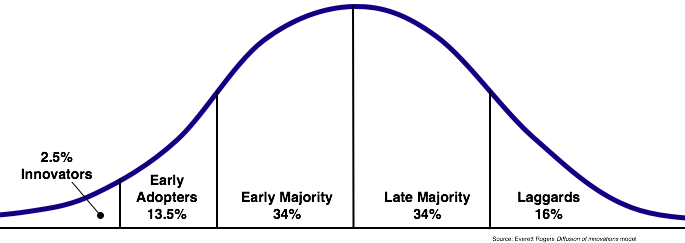Difference between revisions of "Technological Developments"
ErwinMarges (talk | contribs) (→Links:) |
ErwinMarges (talk | contribs) (→Links:) |
||
| (One intermediate revision by the same user not shown) | |||
| Line 32: | Line 32: | ||
* Modern History (0CE - ) | * Modern History (0CE - ) | ||
** Simple machines | ** Simple machines | ||
** 1776: Watt steam engine: James Watt | |||
** Computer science | ** Computer science | ||
| Line 38: | Line 39: | ||
http://en.wikipedia.org/wiki/History_of_technology<br> | http://en.wikipedia.org/wiki/History_of_technology<br> | ||
http://en.wikipedia.org/wiki/Technology_development<br> | http://en.wikipedia.org/wiki/Technology_development<br> | ||
http://en.wikipedia.org/wiki/Technology_Adoption_LifeCycle | http://en.wikipedia.org/wiki/Technology_Adoption_LifeCycle<br> | ||
http://en.wikipedia.org/wiki/Timeline_of_invention | |||
Latest revision as of 22:13, 18 May 2008
Description
Technology development is the process of research and development to achieve new technologies. This leads to new applications and products. Technology is not only related to new electronic developments, but also to more basic developments like stone and fire.
Most of the new developments in the field of technology are not immediately used, but are being applied in the near feature. This has to do with acceptance and change from the final users. We always have the distinction between people that buy new technology as soon as possible, but there are also people that resist changing to new technologies and switch very late. (Technology adaptation life cycle)

Enablers:
- The state of economy, since developments costs resources
- Customer demand
- Companies’ policy on innovation.
Inhibitors:
- Forced labor cut-off; new developments may require personnel with different competencies.
- Ethical issues; New developments could possibly achieve things that where assumed unethical before.
Paradigms:
- Some think that technology always provides good improvements for society, but others resist to developments since their work process might change because of new developments.
- New vacancies can arise where others become obsolete, caused by chancing competencies required by new developments.
Experts:
- USA
- Western Europe
Timing:
- Paleolithic (2.5 million – 10000 BC)
- Stone tools
- Fire
- Clothing and Shelter
- Neolithic
- Metal
- Gold
- Modern History (0CE - )
- Simple machines
- 1776: Watt steam engine: James Watt
- Computer science
Links:
http://en.wikipedia.org/wiki/Technology
http://en.wikipedia.org/wiki/History_of_technology
http://en.wikipedia.org/wiki/Technology_development
http://en.wikipedia.org/wiki/Technology_Adoption_LifeCycle
http://en.wikipedia.org/wiki/Timeline_of_invention